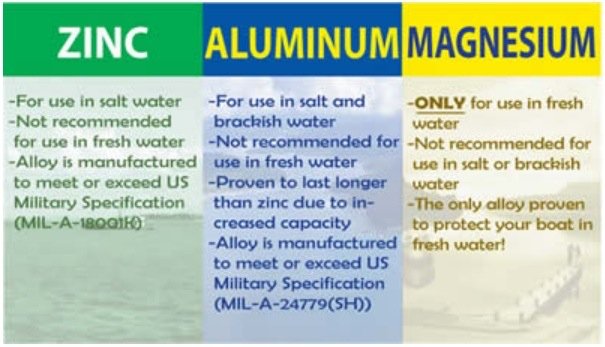Capt Kangeroo
Senior Member
I/O and saildrive corrosion in the Great Lakes is now and has always been a significant problem and every claim I have investigated has been at least in part been due to lack of proper anodes.[/QUOTE]
Hi Boat Poker, Don't know anything about sail drives but a few of my boats had outdrives and like the outboards, they all came from the factory with anodes so theoretically they should not be a problem compared to a completely unprotected boat with inboards. Iv'e done more damage to my outdrives cleaning them with acid products trying to get the damn zebra mussels off but like I said, I have never had any serious corrosion issues. Maybe the anodes themselves are the problem in fresh water
You should look into the acids that are used to clean the hulls these days, I have long suspected these are doing damage to both the fiberglass and the metals, especially outboards & outdrives.
Spent most of my time on Huron, GBay, Erie, Superior. I don't doubt your right however, that the lakes are changing. I'm guessing they are far more acidic in places due to acid rain. Ironically, this is a subject we don't hear much about these days. Perhaps has taken a back seat due to more fashionable issues like global warming.
Your likely to get mixed reactions from a lot of Great Lakes boaters attending your anode seminar but I'm sure you will have the ear of everyone present when it comes to electrocution issues. Wouldn't mind attending that myself, can't count how many times I've dropped the power cord in the water.
Hi Boat Poker, Don't know anything about sail drives but a few of my boats had outdrives and like the outboards, they all came from the factory with anodes so theoretically they should not be a problem compared to a completely unprotected boat with inboards. Iv'e done more damage to my outdrives cleaning them with acid products trying to get the damn zebra mussels off but like I said, I have never had any serious corrosion issues. Maybe the anodes themselves are the problem in fresh water
You should look into the acids that are used to clean the hulls these days, I have long suspected these are doing damage to both the fiberglass and the metals, especially outboards & outdrives.
Spent most of my time on Huron, GBay, Erie, Superior. I don't doubt your right however, that the lakes are changing. I'm guessing they are far more acidic in places due to acid rain. Ironically, this is a subject we don't hear much about these days. Perhaps has taken a back seat due to more fashionable issues like global warming.
Your likely to get mixed reactions from a lot of Great Lakes boaters attending your anode seminar but I'm sure you will have the ear of everyone present when it comes to electrocution issues. Wouldn't mind attending that myself, can't count how many times I've dropped the power cord in the water.



